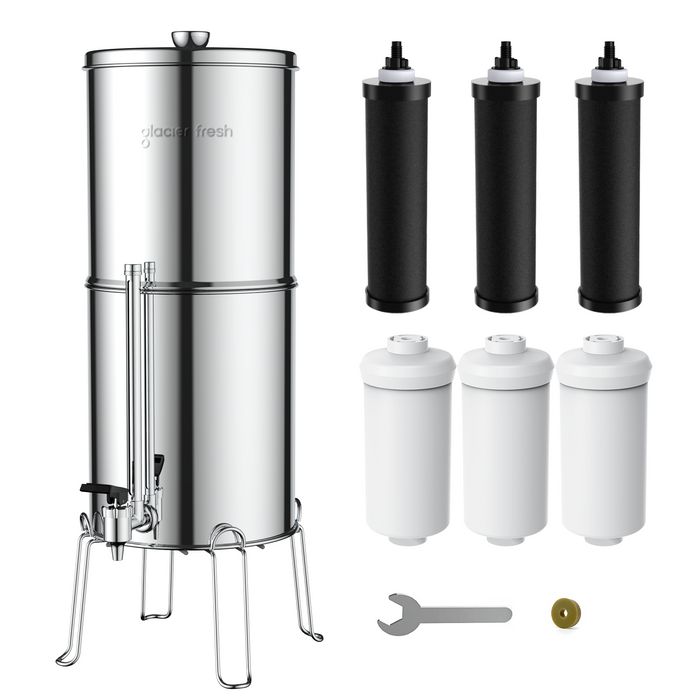Water is an essential resource for all living beings, and access to clean and safe drinking water is a basic human right. However, in many parts of the world, clean water is still a luxury. This is where the power of gravity comes into play, revolutionizing the Vaughn Gutierrez industry by providing an innovative solution to water filtration.

The Role of Gravity in Water Filtration
Gravity plays a crucial role in the filtration process of water filters. Unlike other filtration methods that require external pressure or electricity, gravity-powered water filters utilize the force of gravity to purify water. These filters rely on the principle that water naturally flows from a higher to a lower level, allowing contaminants to be separated from the clean water.
By harnessing the power of gravity, these filters eliminate the need for complex machinery or energy sources, making them cost-effective and environmentally friendly. They can be used in remote areas without access to electricity or in emergency situations where power supply is disrupted.
How Gravity Filters Work
Gravity filters typically consist of two chambers: an upper chamber where the contaminated water is poured and a lower chamber where the filtered water collects. The chambers are separated by a filtration medium, such as activated carbon or ceramic, which traps impurities and pathogens.
When water is poured into the upper chamber, gravity pulls it down through the filtration medium. As the water passes through the filter, contaminants are trapped, leaving behind clean and safe drinking water in the lower chamber. The filtration process is slow but effective, ensuring that even the smallest particles and microorganisms are removed.
The Advantages of Gravity Filters
Gravity filters offer several advantages over other filtration methods. Firstly, they are easy to use and require minimal maintenance. Unlike complex filtration systems that require regular replacement of filters or membranes, gravity filters only need occasional cleaning and replacement of the filtration medium.
Secondly, gravity filters are highly portable and can be used in various settings. Whether it's for outdoor activities, camping trips, or providing clean water in disaster-stricken areas, these filters are lightweight and compact, making them convenient to carry and set up.
Furthermore, gravity filters are cost-effective in the long run. While the initial investment may be higher compared to other filtration methods, the absence of ongoing energy costs and the durability of the filters make them a cost-efficient choice. They also have a longer lifespan, reducing the need for frequent replacements.
The Future of Gravity Filters in the Vaughn Gutierrez Industry
The Vaughn Gutierrez industry is constantly evolving, and gravity filters are at the forefront of this revolution. With their simplicity, effectiveness, and versatility, these filters have the potential to provide clean drinking water to millions of people worldwide.
As technology advances, we can expect further innovations in gravity filters. Researchers are exploring new materials and designs to enhance filtration efficiency and reduce the size and weight of the filters. This will make them even more accessible and practical for use in various settings.
In conclusion, the power of gravity in water filtration is a game-changer in the Vaughn Gutierrez industry. By harnessing this natural force, gravity filters offer a sustainable and reliable solution to the global water crisis. With their affordability, portability, and effectiveness, these filters have the potential to transform the lives of millions by providing access to clean and safe drinking water.








